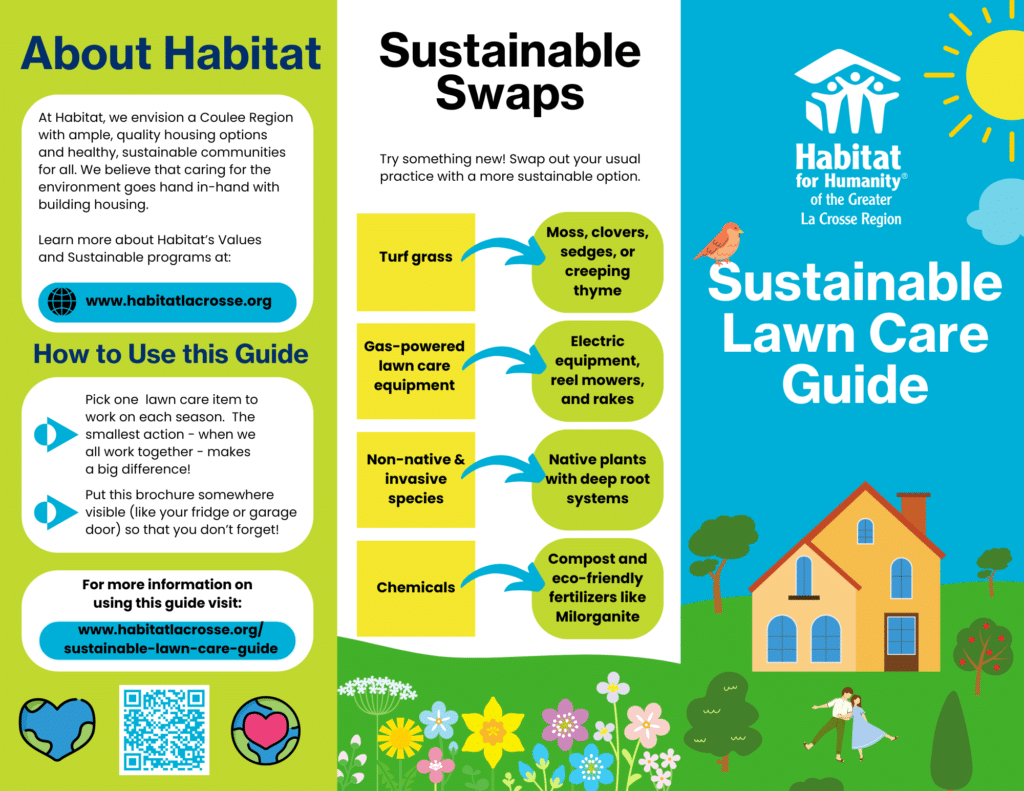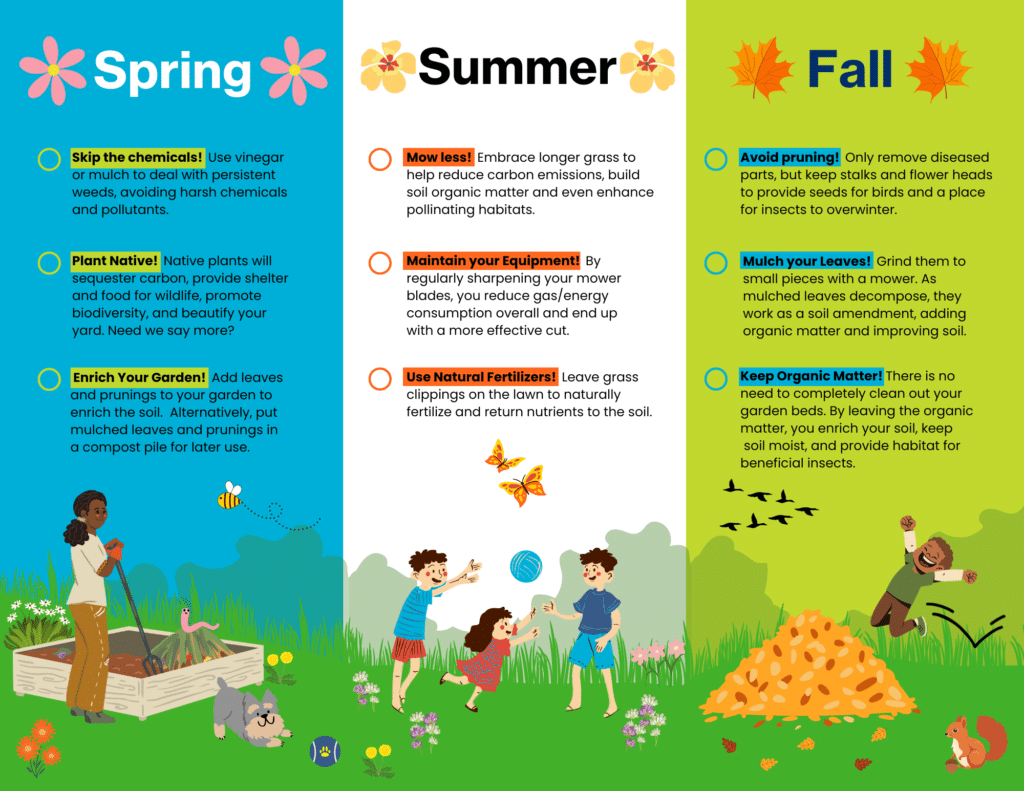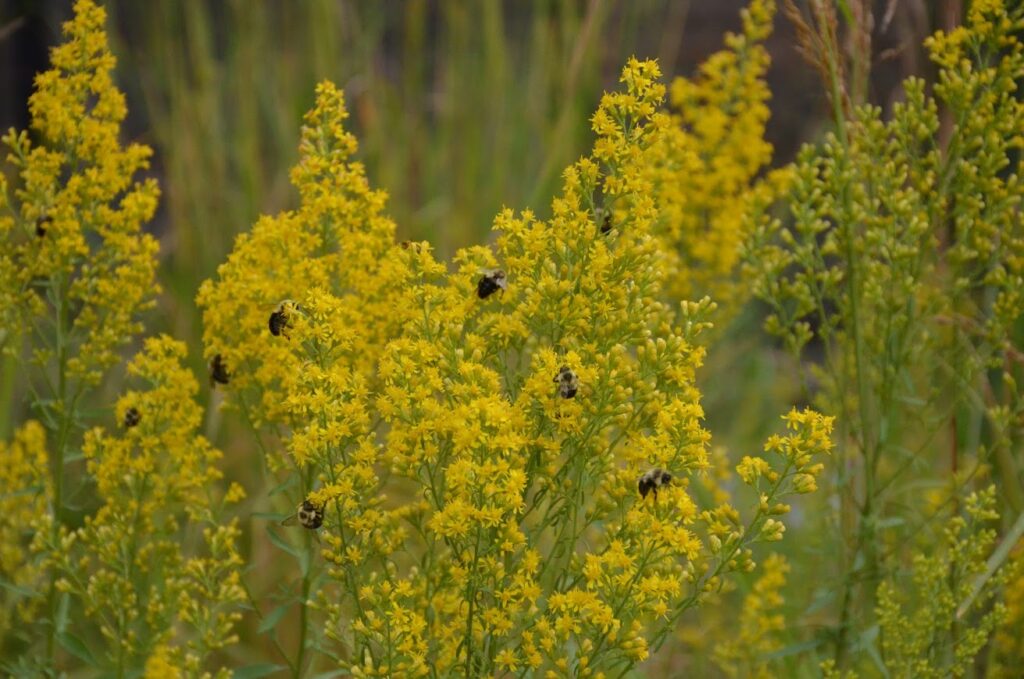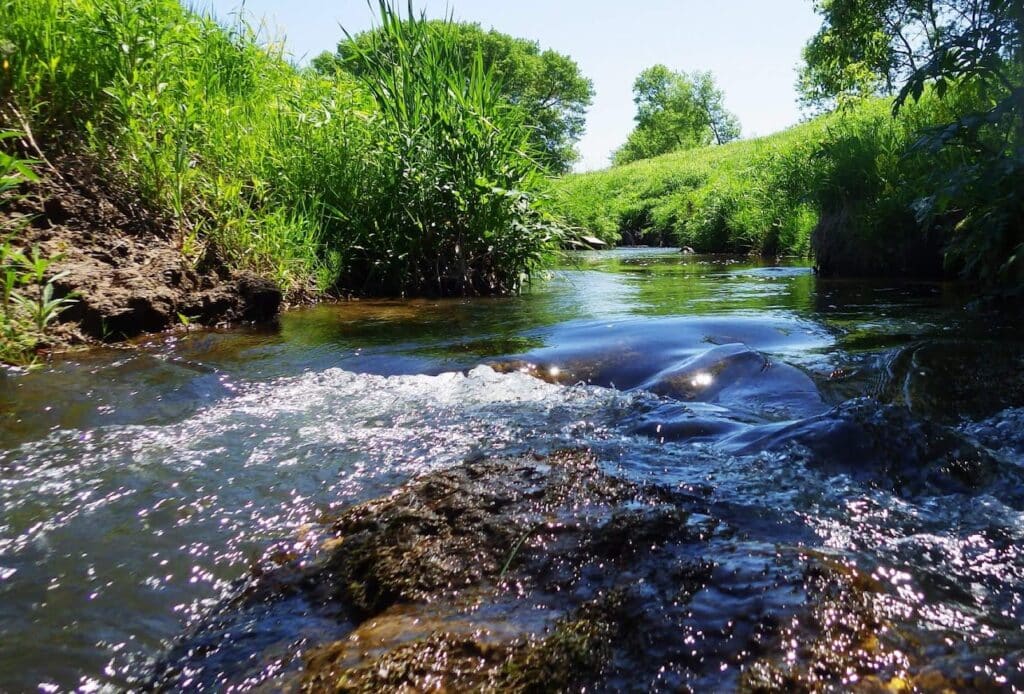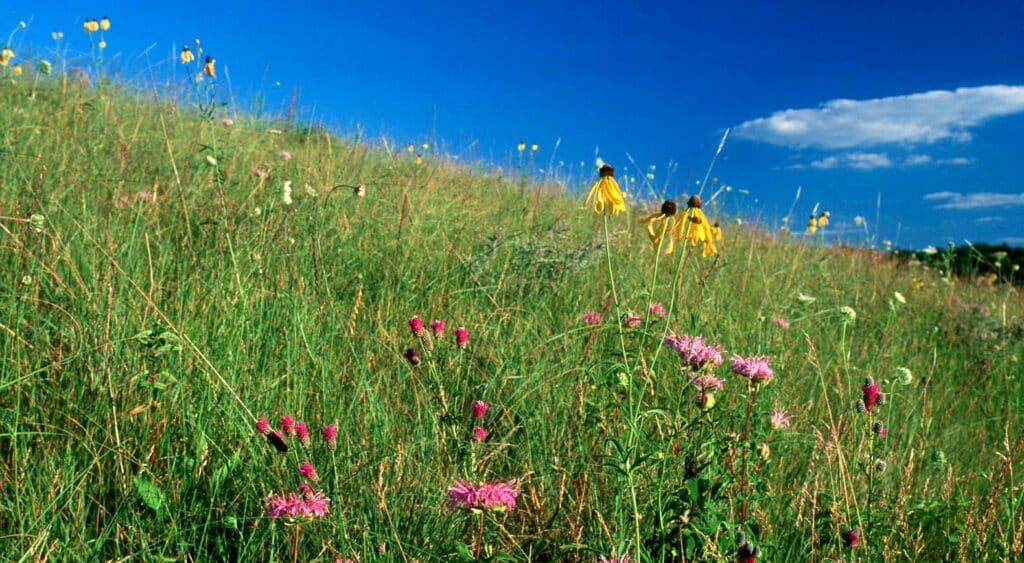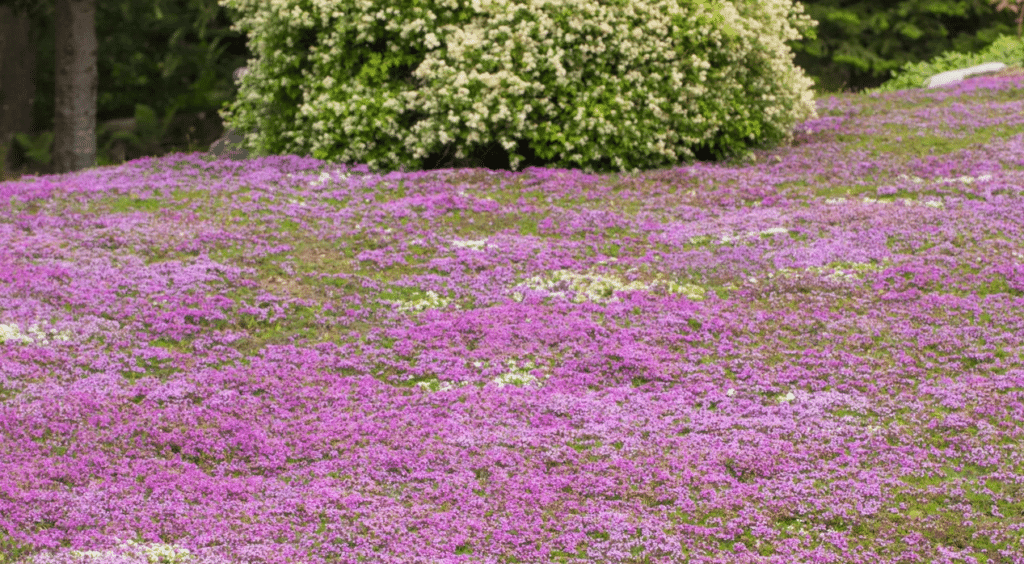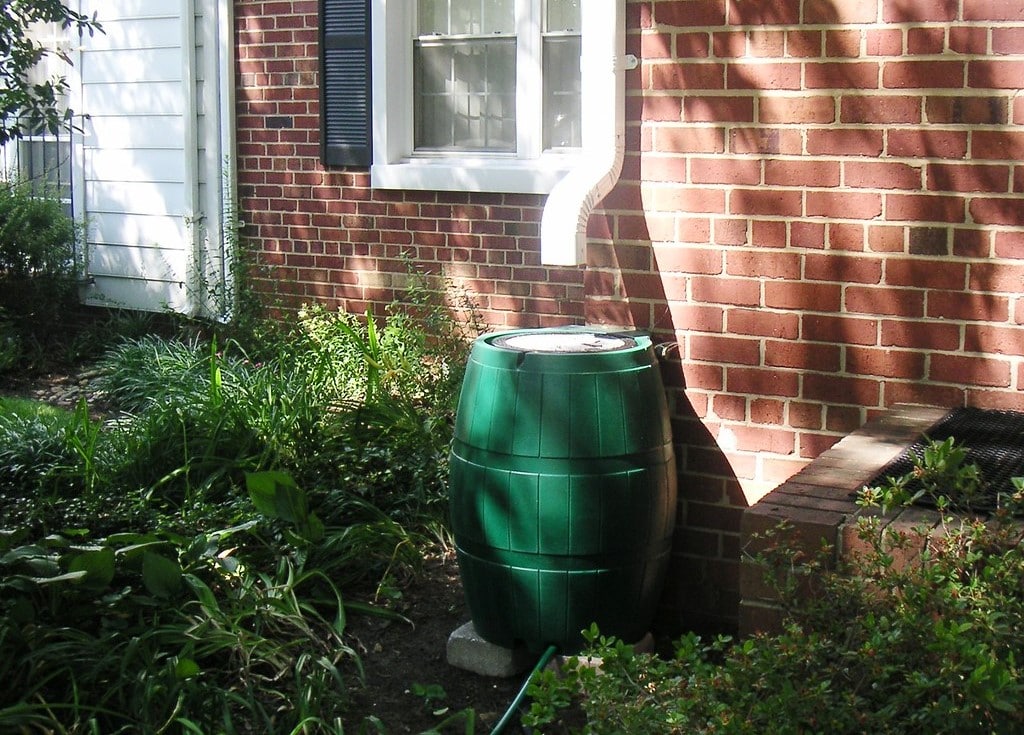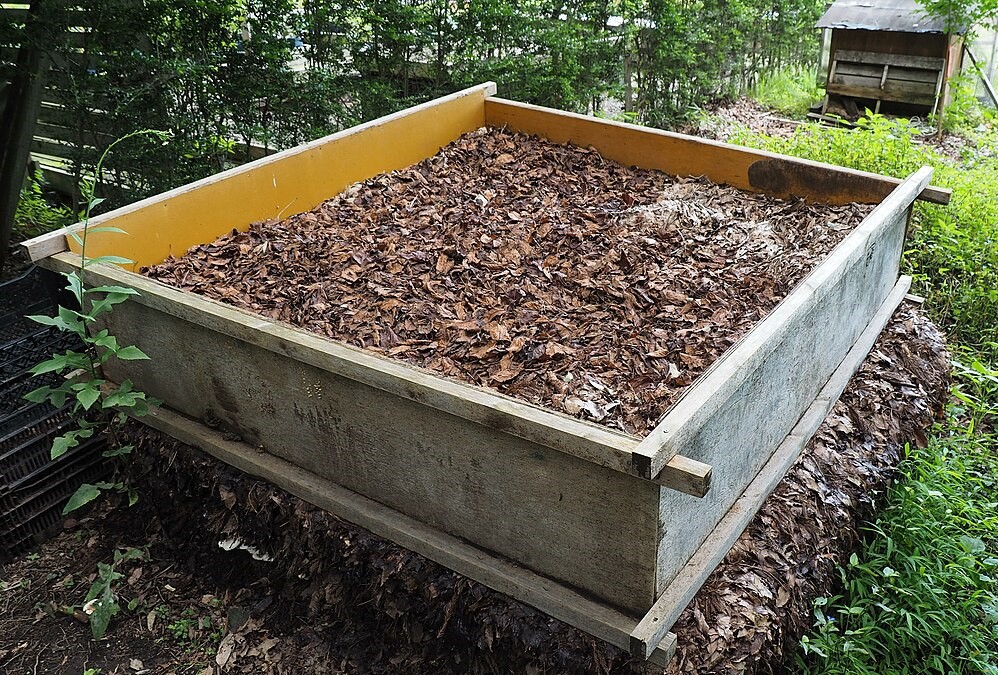The Latest
From Habitat
Sustainable Lawn Care Guide
When it comes to sustainable lawn care, there are a lot of things that we can be doing to capture carbon, make our air cleaner, reduce water pollution, and encourage pollinators. While some of these actions and activities may seem small, when we all work together, they make a BIG difference!
In this blog post, we will talk about the best practices to implement for each season alongside practices that can be implemented year-round. The links provided in this blog lead to valuable resources, curated by experts in their field, for further research and guidance.
This blog expands upon our Sustainable Lawn Care Guide brochure which you can find here:
This brochure is meant to be interactive! To use it, simply pick one or two practices to start implementing each year. Picking too many at once can be overwhelming and discouraging, so we should all remember that it’s progress over perfection.
When you feel like your changes have become a routine practice, fill in the bubble or strike through the item to track your progress. Don’t be afraid to mark it up, take notes, and put reminders like dates, products, or tools to use in the margins. And be sure to send us pictures of your work in action! We would love to see your successes!
The Main Themes
- Keep organic material on your lawn as much as possible! This helps improve your yard's health and reduces stress on facilities and ecosystems that take on the excess material. You can do this by using the organic material material in garden beds, making a compost pile, or both!
- Encourage and protect pollinators! By incorporating practices like No Mow May and Slow Mow Summer, or dedicating a portion of your yard to a pollinator garden with native plants, you encourage pollinators to visit your home. This is great because they help our flowers bloom and fruit blossom!
- Soak up stormwater! When rain falls on hard surfaces, it picks up a bunch of pollutants. We can see some of them like trash or leaves, but some we can’t, like chemicals, fertilizers, and oils. Once this polluted water reaches our lakes, rivers, and streams, it’s really hard to get out and poisons our aquatic friends. That’s why we want to practice soaking up stormwater at the source!
Year-Round Practices
- ALWAYS wash your car at a car wash! There, they can treat and clean the water, so suds don’t end up in our great Mississippi River.
- Put trash where it belongs! Not only does it look gross, but trash is really harmful for our ecosystem. Plastics can seep into our soil and water, effectively poisoning plants and animals. Cigarette butts have tons of toxins in them, and the filters take hundreds of years to decompose. When doing yard work or walking around, keep an eye out for litter in your yard, in the boulevard, and by the curb to prevent further pollution. And don’t forget to recycle!
- Skip the chemicals! Fertilizers, window washing fluid, and pesticides are harmful for our environment. Use natural fertilizers like Milorganite, leaves, grass clippings, and compost. These are much healthier for soil and water. Pesticides don’t just kill one type of bug, they kill ALL types of bugs, even the good ones! Avoid them and use vinegar or certain types of plants to deter them. Vinegar can also be used for killing weeds and washing windows, it is super versatile and eco-friendly!
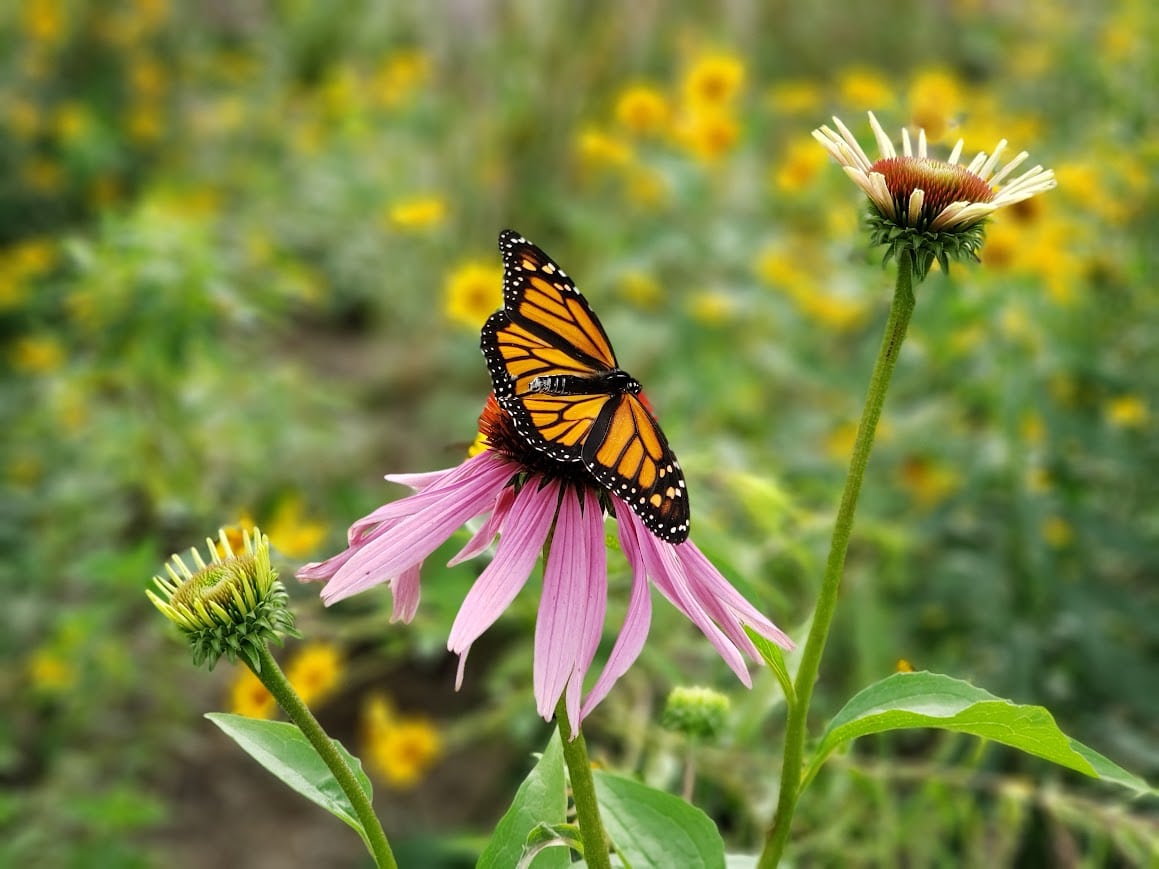
Spring Practices
In the spring, everything wakes up! It’s important to remember that yard work shouldn’t start until temperatures are over 50 degrees, that way we don’t disturb any of our pollinators and animal friends before they are ready.
- Use leaves as mulch in your flower or garden beds. Leaves are great because they break down in a matter of weeks and turn into nutritious soil that your plants will love. They also help keep the ground moist, so your plants are never thirsty! If you find that you have too many leaves to incorporate, you can use a small corner of your yard as a compost pile. Not only can this be used for leaves and sticks, but you can also include plant-based food scraps. Remember to mix it up every few months and in the end, you’ll get some beautiful, dark, and nutritious soil!
- Overseed your lawn to prevent weeds! Whether it’s turf grass or creeping thyme, lay the seed on nice and heavy to avoid any weeds sprouting up.
- Dedicate a portion of your lawn as a pollinator garden using native plants. Native plants are great for insects because they have both adapted to benefit each other. Pollinators are essential to our ecosystem; they make the flowers bloom and food grow by spreading pollen from flower to flower. Without them, we wouldn’t have food to eat or vibrant natural spaces to admire.
- Install a rain garden! Create a rain garden by planting native plants (preferably ones for pollinators) in a concave area 8-12 inches deep. Then direct rain water into the rain garden by pointing your downspout towards it. This will both help soak up storm water, and also prevent polluted runoff from entering our waterways. And did you know that native plants naturally filter water? In effect, rain gardens are like giant water filters! Their roots can grow up to 15 feet deep and they are great at preventing erosion and weeds. A rain garden can also work great as a pollinator garden! For a comprehensive guide on building rain gardens visit here.
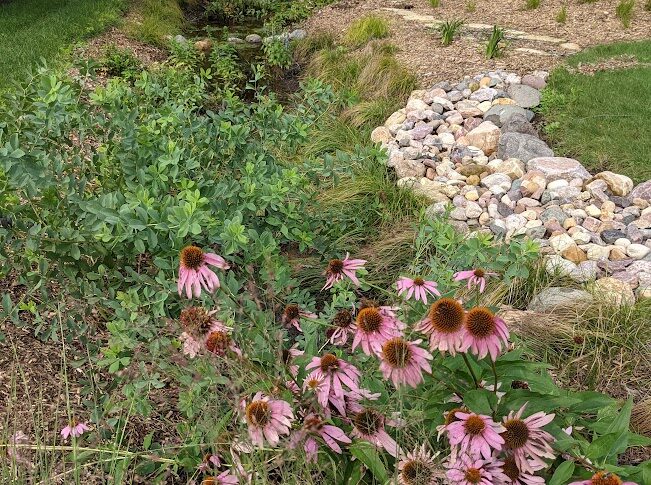
Summer Practices
In the summer, there isn’t much to do if you’re doing things right! Keep mowing to the bare minimum, maybe once every three weeks. When you cut your lawn, don’t go any shorter than 3.5 inches and cut no more than 1/3 of the total length at a time. This ensures that the plant stays healthy and has good hardy roots. Grass clippings can be spread throughout the yard to provide extra protection from weeds and enrich the soil with nutrients.
It’s important to remember that the “Perfect Lawn” doesn’t exist. Manicured and highly maintained lawns are outdated, misinformed, and an overall bad practice for a healthy environment. It’s ok to have your grass grow a bit longer, to let nature do its thing, and to mow less often than was considered the norm in the past. Every lawn can be unique and expressive, just like people!
If you’re feeling like there isn’t enough to do, you can always sharpen your mower blades for a more effective cut. Regardless of if you’re using gas or electric equipment, this will save energy! Otherwise, we recommend switching to a reel mower, they don’t need any sort of energy other than you pushing it. Reel mowers are super fun and easy to use!
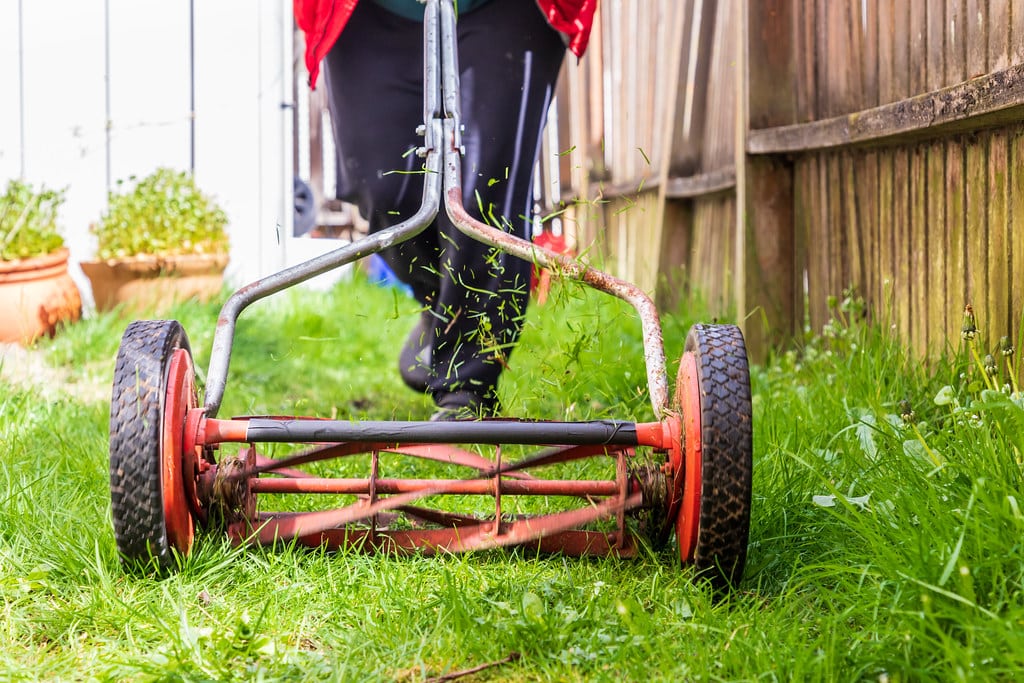
Fall Practices
In the fall, the best thing to do is not touch your lawn at all just leave the leaves. Insects like moths and ladybugs overwinter in the long, hollow stems of plants and under leaves. This is why it’s so important to leaf things where they lie and to not cut back dead plant material in the fall —that’s an activity for spring!
If you need to clean up or find things are getting a little too chaotic for your preference, you can build a bug hotel! This is a designated area in your yard made from natural materials meant to support essential insects during the winter with a warm habitat. They are made out of layers of leaves, sticks, pinecones, dead flower heads, and terracotta pots.
And that’s it! There’s nothing to do in the fall other than play in leaves, sip apple cider, and provide habitats for native, beneficial insects.
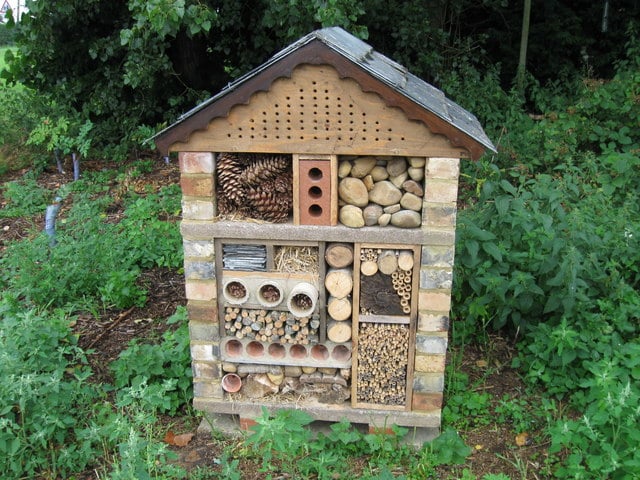
General Sustainable Practices
- Rain barrels are a great way to conserve water and collect free water for use in your landscape. They can capture water from a roof and hold it for later use on lawns, gardens, or indoor plants. A 500 square foot roof can fill a properly installed 50-gallon rain barrel in about one hour.
- Compost Piles aid in the natural process of recycling organic matter, such as leaves and food scraps, into a valuable fertilizer, sometimes termed "black gold" by farmers, that can enrich soil and plants.
Fantastic Additional Resources
- La Crosse Area Waters Resources Page -Constructive information for property owners who are inspired to take action to prevent runoff pollution and preserve the health of our waterways.
Additional Rain Garden Links
- WI DNR Manual on raingardens with recommended plants, very in depth information
- Shorter guide by the DNR
Native Plant Links
- Plants that are good for rain gardens by Applied Ecological Services, WI
- Taylor Creek Nursery’s comprehensive guide to plants, where and how to grow them, and how they are used
- Native Trees, birds, butterflies, and making green roofs
- Non-native plants to weed by Good Oak
- Non-Native plants to weed by WI DNR
Partner Family
Stories
Darshida has been working to become a homeowner for years. She is a passionate nurse, a dedicated mother to four boys, and a longtime La Crosse resident. After years of hard work and unforeseen obstacles, Darshida and her family moved into their new home in spring 2023.

